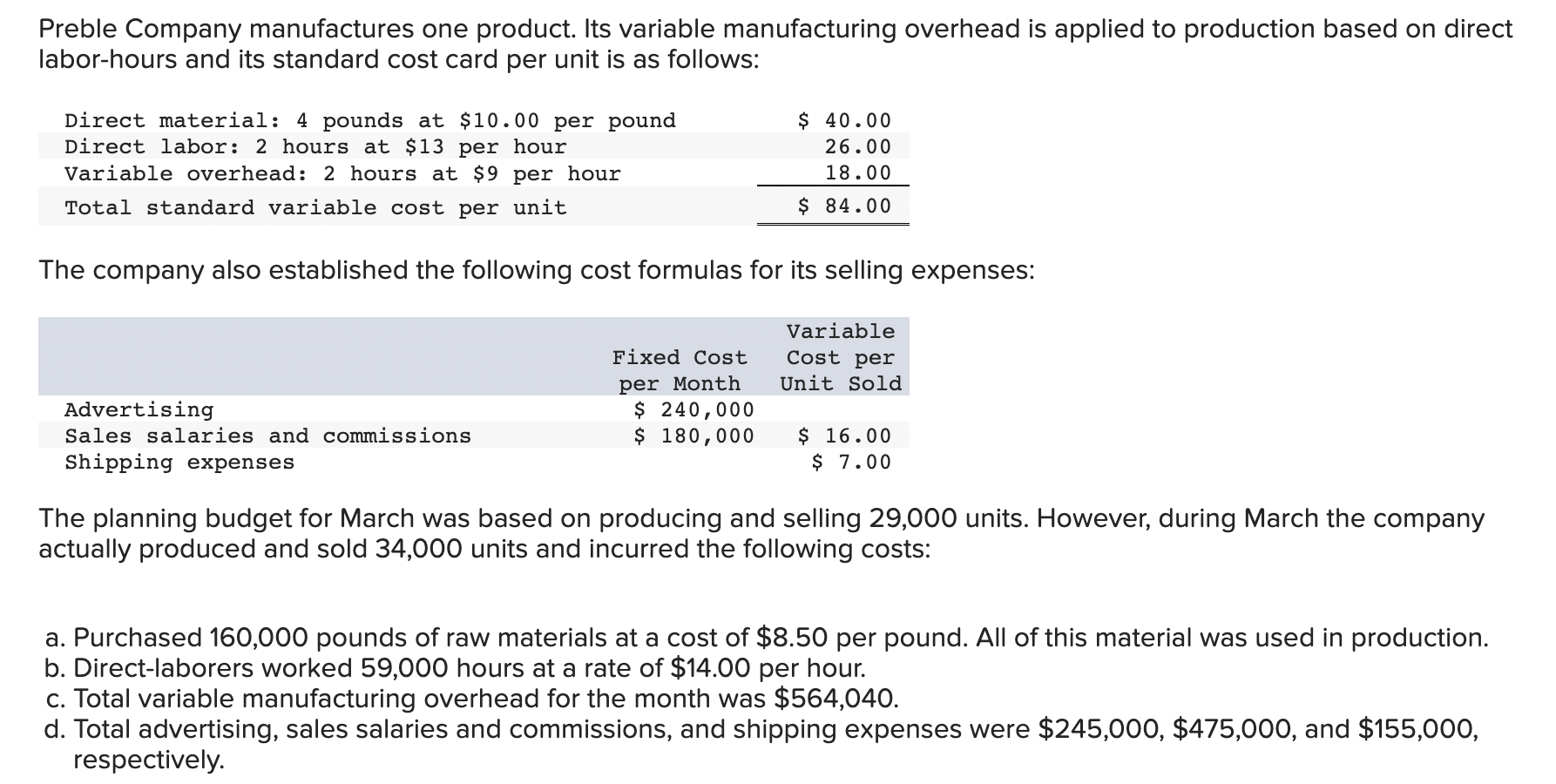Question
1. What is the direct labor rate variance for March? (Indicate the effect of each variance by selecting F for favorable, U for unfavorable, and
 1. What is the direct labor rate variance for March? (Indicate the effect of each variance by selecting "F" for favorable, "U" for unfavorable, and "None" for no effect (i.e., zero variance.). Input the amount as a positive value.)
1. What is the direct labor rate variance for March? (Indicate the effect of each variance by selecting "F" for favorable, "U" for unfavorable, and "None" for no effect (i.e., zero variance.). Input the amount as a positive value.)
2. What variable manufacturing overhead cost would be included in the companys flexible budget for March?
3. What is the variable overhead efficiency variance for March? (Indicate the effect of each variance by selecting "F" for favorable, "U" for unfavorable, and "None" for no effect (i.e., zero variance.). Input the amount as a positive value.)
4. What is the variable overhead rate variance for March? (Indicate the effect of each variance by selecting "F" for favorable, "U" for unfavorable, and "None" for no effect (i.e., zero variance.). Input the amount as a positive value.)
5. What amounts of advertising, sales salaries and commissions, and shipping expenses would be included in the companys flexible budget for March?
6. What is the spending variance related to advertising? (Indicate the effect of each variance by selecting "F" for favorable, "U" for unfavorable, and "None" for no effect (i.e., zero variance.). Input the amount as a positive value.)
7. What is the spending variance related to sales salaries and commissions? (Indicate the effect of each variance by selecting "F" for favorable, "U" for unfavorable, and "None" for no effect (i.e., zero variance.). Input the amount as a positive value.)
8. What is the spending variance related to shipping expenses? (Indicate the effect of each variance by selecting "F" for favorable, "U" for unfavorable, and "None" for no effect (i.e., zero variance.). Input the amount as a positive value.)
Preble Company manufactures one product. Its variable manufacturing overhead is applied to production based on direct labor-hours and its standard cost card per unit is as follows: The company also established the following cost formulas for its selling expenses: The planning budget for March was based on producing and selling 29,000 units. However, during March the company actually produced and sold 34,000 units and incurred the following costs: a. Purchased 160,000 pounds of raw materials at a cost of $8.50 per pound. All of this material was used in production. b. Direct-laborers worked 59,000 hours at a rate of $14.00 per hour. c. Total variable manufacturing overhead for the month was $564,040. d. Total advertising, sales salaries and commissions, and shipping expenses were $245,000,$475,000, and $155,000, respectively
Step by Step Solution
There are 3 Steps involved in it
Step: 1

Get Instant Access to Expert-Tailored Solutions
See step-by-step solutions with expert insights and AI powered tools for academic success
Step: 2

Step: 3

Ace Your Homework with AI
Get the answers you need in no time with our AI-driven, step-by-step assistance
Get Started


